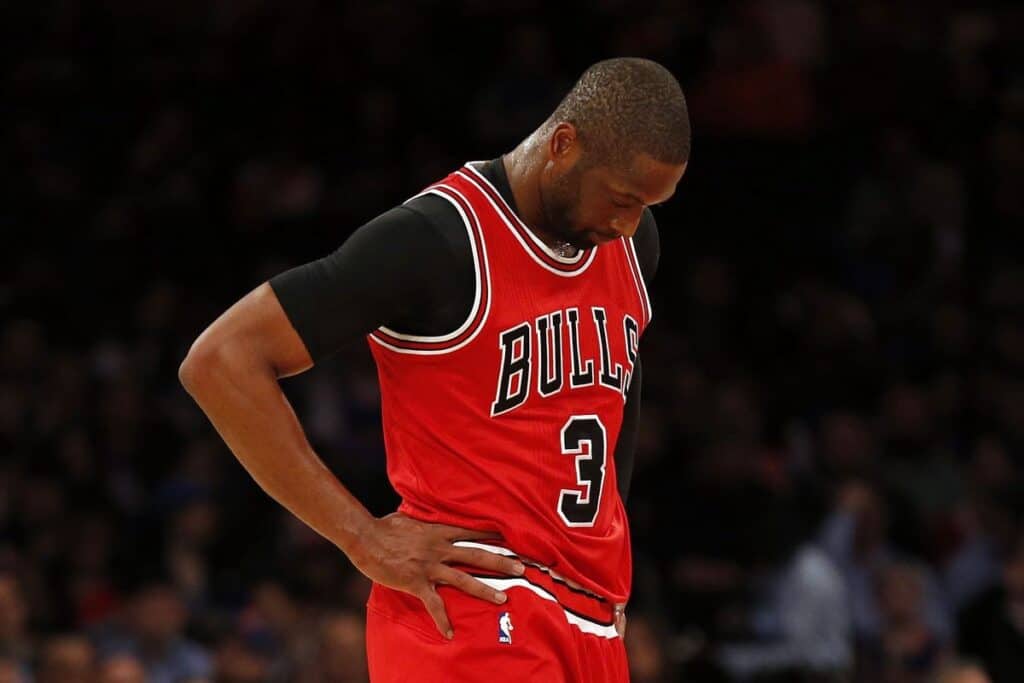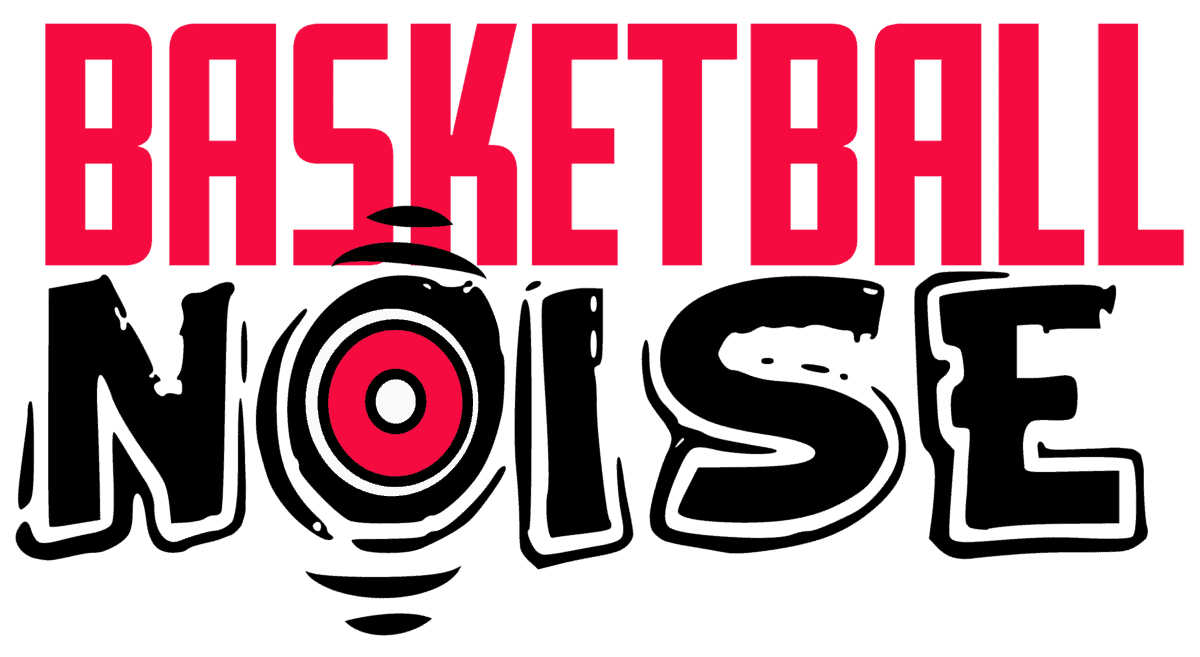Every once in a while, you get a veteran player on an NBA roster that just doesn’t want to be there. That player is likely sitting out in the hopes that the team will trade him someplace else. When his value starts to hit a low and nobody swoops in to trade for him, we start to hear of the term buyout.
How Do NBA Contract Buyouts Work? A buyout is when a player and a team decide that they want to go in separate directions. The player agrees to give up some of the guaranteed money left on their contract and the team in turn agrees to release them. The player would then be available to sign for other teams as a waived player. This most commonly occurs around the mid-season All Star break so the player can sign for a new team before 1st March and be eligible for the Playoffs.

The benefit for the player is that they get to play in a situation that they feel best suits them. The team benefits because they save money on the total cost of the contract and no longer have the distraction of a potentially high profile player hanging around their squad and dominating the media story around them. Now that you know the basic definition of buyouts in the NBA, we are going to dive a little bit deeper on the topic.
If you don’t want to read the full article then watch our video below which explains how do NBA Contract Buyouts work?
Contract buyouts must be cleared through Waivers
When a buyout actually gets agreed upon by either party, the player can’t just instantly sign with a new team. Even if he were to be keeping his eyes on a specific championship contending roster, he has to wait until he officially clears waivers before signing anywhere. The waivers are a two-day period of time when all teams are allowed to essentially place bids on the players’ services. The winning team would get to sign the player and he wouldn’t have a choice on where he gets to go. Normally, this doesn’t happen much. However, it is still very much in play whenever you see a player get bought out.
Importantly, if a team does in fact win the sweepstakes for him with their bid, they would be handed the remainder of the player’s contract. In most cases, with veteran players especially, they carry some hefty contracts. A lot of times NBA teams will choose not to bid so that they won’t have to deal with the contract hit and then they could just sign him for a veteran’s minimum deal when he clears the waivers. When it comes to the point guard John Wall and his $40 million plus cap hit, nobody is going to pick him up in the waiver wire even if he were to get bought out. Who would want to take on that much money when they can sign him for a significantly cheaper deal for a year or two?
The other big risk of trying to sign someone before they clear waivers is that they have obviously forced a situation where they have hit waivers and probably have some preferred destinations. So unless you know that one of them is your franchise, you’re probably going to pay alot for nothing more than trouble!
Why Would a Team Want a Buyout?
On the surface, it doesn’t really make a lot of sense for the teams who decide to just let these guys out of their contracts. However, there are a few reasons why they might want to do something like this. The first is that they can save money. Most organizations love this and it’s not hard to see why. Sometimes, when a player desperately wants off the team, their contract number could be reduced to zero after some negotiations. Other times, the NBA teams can negotiate to take a large chunk of their owed money off the table in order to let them go into the buyout market. Another reason why they might do this is because the guy might not fit into what they are trying to accomplish as a team. For example, if the Oklahoma City Thunder signed Blake Griffin in the hopes of winning a championship next season, obviously that wouldn’t work. The Thunder would realize their championship aspirations are out of reach and get Griffin’s salary either reduced or completely off the books to focus on the future. Finally, teams won’t want to hold players against their will and waste precious years of their time. A lot of times, the veterans that ask for these buyouts are respected members of the association who just want a chance to chase a championship. Management usually sees that and allows them to go after that chance. This is especially true if a player is incredibly nice to the staff and the other players for the entire time he was there.
When an NBA Team does a Buyout does the salary stay on their cap sheet?
Yes. Whatever the player agrees to give up, comes off the total. Whatever is left remains on the team’s cap sheet. This is why you would usually only see buyouts in the final year of a players contract, unless in exceptional circumstances. A great example to illustrate this is Dwayne Wade’s 2017 odyssey in Cleveland.
This is actually one of the more expensive buyouts when Dwyane Wade agreed to give up $8.3 million in guaranteed money in order to be released by the Chicago Bulls and sign with former teammate Lebron James on the Cleveland Cavaliers. Wade was owed $23 million for his final contract year with Chicago. The money he gave back reduced the cap hit for the Bulls, but it was still over $15 million. The fall out of the “Three Alphas” experiment is still felt on the Bulls roster to this day.
Side note; Wade would leave Cleveland that season after failing to re-ignite the title winning chemistry he’d enjoyed with Lebron in Miami. He’d return to Miami, get jacked and embark on an epic farewell tour before retiring.
Most Successful NBA Buyouts
One of the most memorable NBA contract buyouts over the last decade or so came from the Atlanta Hawks. They were able to trade for the veteran scorer Carmelo Anthony from the Oklahoma City Thunder. Anthony clearly didn’t fit their organization’s timeline so they instantly bought out $25.5 million of his $27.9 million contract. They still paid him a minor chunk of that money, but it was definitely a lot less than it could have been.
Another super memorable and successful buyout for both sides was P.J. Brown in 2008. Brown was snagged by the Boston Celtics when he hit the buyout market pretty quickly. When he arrived to the team, he was instantly helpful in all aspects of the game. Brown ended up winning an NBA Championship with Boston that season and was an impressive role player throughout the postseason. He wasn’t the superstar on the roster, but the team could have been a lot worse without him there. Now, there have been a lot of other players who have seen their contracts get bought out over the years. The Cleveland Cavaliers grabbed both Deron Williams and Derrick Williams from the buyout market just a handful of years ago. Brandon Jennings got his contract bought out by the New York Knicks as well. Bottom line, it’s not always rare for a buyout acquisition to be super influential on the team’s championship aspirations. Sometimes all a team needs are a veteran leader who can step in and contribute in minimal areas on the floor. The buyout market isn’t going to be going away anytime soon, and there is a strong chance that we will see a lot more players hit this market in the following years. Maybe at some point John Wall will see his contract get bought out.
